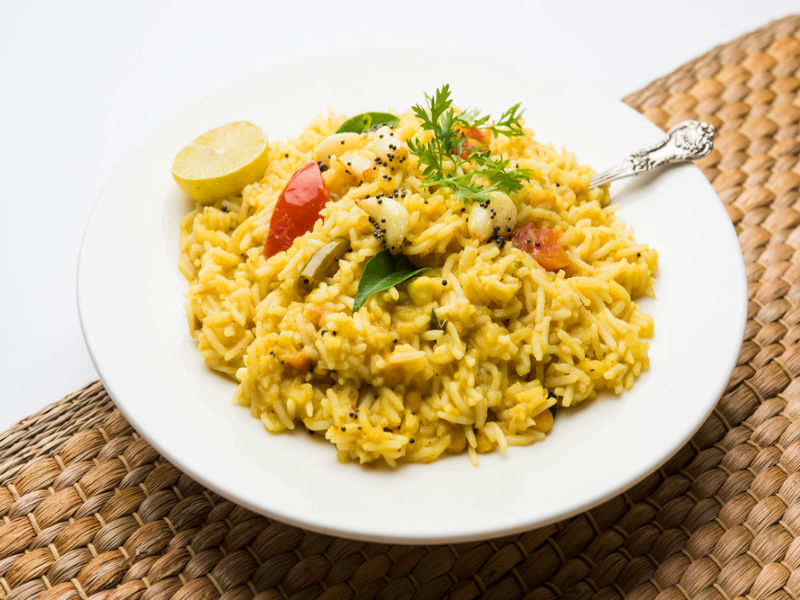Focus on fining 2-wheeler riders: CP to traffic cops
Proshun Chakraborty | tnn | Feb 5, 2019, 05:56 IST
Nagpur: Commissioner of police Bhushan Kumar Upadhyay has asked traffic police to focus on penalizing more two-wheeler riders as they account for 90% of total traffic violations in the city.
During the launch of road safety week organized at city Regional Transport Office in Giripeth, Upadhyay said the traffic police have been directed to book two-wheeler riders without helmet under Section 184 of Motor Vehicle Act (dangerous driving) and imposition of this section will increase existing fine amount of Rs500 to Rs 1,200.
“Currently, the fine for those riding two-wheelers without helmet is Rs500. But henceforth, the fine will be Rs1,200,” said the police chief while urging motorists to follow traffic rules religiously.
With the theme ‘Sadak Suraksha, Jeevan Raksha,’ the road safety week will be observed from February 4 to 10.
According to Upadhyay, CCTV cameras installed at various junctions don’t work as a deterrent for violators unless the system is being integrated to petrol pumps or LPG agencies. Those who violate rules would be deprived of these essential commodities, he said.
Quoting data from National Crime Records Bureau, the CP, who had worked in Nagpur in early 2000 as deputy commissioner of police (traffic) and joint commissioner of Mumbai police (traffic), said Maharashtra stands second in the country in road accidents. Of the 1.40 lakh people who died in road accidents in the country last year, 33,000 were killed in Maharashtra, he said.
Upadhyay claimed that in 2018, the traffic police succeeded in bringing down fatal accidents by almost 8% by taking various efforts. “During assessment of the vehicles involved in road accidents, we came to the conclusion that two-wheeler riders were the highest number of victims. So, new directives have been issued to the traffic police to act tough against two-wheeler riders,” the CP said.
In January 2019 itself, road accidents in the city have further reduced by 7%, he claimed.
Earlier, chief engineer (state’s public works department) Ulhas Debadwar said his department has created posts of road safety auditors and deployed engineers. The motive behind creating the posts is to ensure construction of new roads is flawless and does not create any black spots.
Rajan Welukar, vice-chancellor of GH Raisoni University, expressed concern over rise in road accidents and stressed the need for arresting number of road fatalities as it affects country’s economy. He urged citizens to follow the mantra ‘Meech Majha Rakshak’ (I am my own saviour) and if one follows this, not only traffic violations but road accidents will certainly come down. The private university is also planning to start a separate course on road safety.
Deputy RTO (Nagpur city) Atul Adey said 80% of road accidents are due to human faults.
The CP also felicitated activists of Janakrosh, a city NGO involved in spreading traffic rules awareness. Students of Raisoni Engineering College performed street play on ‘follow traffic rules’.
During the launch of road safety week organized at city Regional Transport Office in Giripeth, Upadhyay said the traffic police have been directed to book two-wheeler riders without helmet under Section 184 of Motor Vehicle Act (dangerous driving) and imposition of this section will increase existing fine amount of Rs500 to Rs 1,200.
“Currently, the fine for those riding two-wheelers without helmet is Rs500. But henceforth, the fine will be Rs1,200,” said the police chief while urging motorists to follow traffic rules religiously.
With the theme ‘Sadak Suraksha, Jeevan Raksha,’ the road safety week will be observed from February 4 to 10.
According to Upadhyay, CCTV cameras installed at various junctions don’t work as a deterrent for violators unless the system is being integrated to petrol pumps or LPG agencies. Those who violate rules would be deprived of these essential commodities, he said.
Quoting data from National Crime Records Bureau, the CP, who had worked in Nagpur in early 2000 as deputy commissioner of police (traffic) and joint commissioner of Mumbai police (traffic), said Maharashtra stands second in the country in road accidents. Of the 1.40 lakh people who died in road accidents in the country last year, 33,000 were killed in Maharashtra, he said.
Upadhyay claimed that in 2018, the traffic police succeeded in bringing down fatal accidents by almost 8% by taking various efforts. “During assessment of the vehicles involved in road accidents, we came to the conclusion that two-wheeler riders were the highest number of victims. So, new directives have been issued to the traffic police to act tough against two-wheeler riders,” the CP said.
In January 2019 itself, road accidents in the city have further reduced by 7%, he claimed.
Earlier, chief engineer (state’s public works department) Ulhas Debadwar said his department has created posts of road safety auditors and deployed engineers. The motive behind creating the posts is to ensure construction of new roads is flawless and does not create any black spots.
Rajan Welukar, vice-chancellor of GH Raisoni University, expressed concern over rise in road accidents and stressed the need for arresting number of road fatalities as it affects country’s economy. He urged citizens to follow the mantra ‘Meech Majha Rakshak’ (I am my own saviour) and if one follows this, not only traffic violations but road accidents will certainly come down. The private university is also planning to start a separate course on road safety.
Deputy RTO (Nagpur city) Atul Adey said 80% of road accidents are due to human faults.
The CP also felicitated activists of Janakrosh, a city NGO involved in spreading traffic rules awareness. Students of Raisoni Engineering College performed street play on ‘follow traffic rules’.

































All Comments ()+^ Back to Top
Refrain from posting comments that are obscene, defamatory or inflammatory, and do not indulge in personal attacks, name calling or inciting hatred against any community. Help us delete comments that do not follow these guidelines by marking them offensive. Let's work together to keep the conversation civil.
HIDE